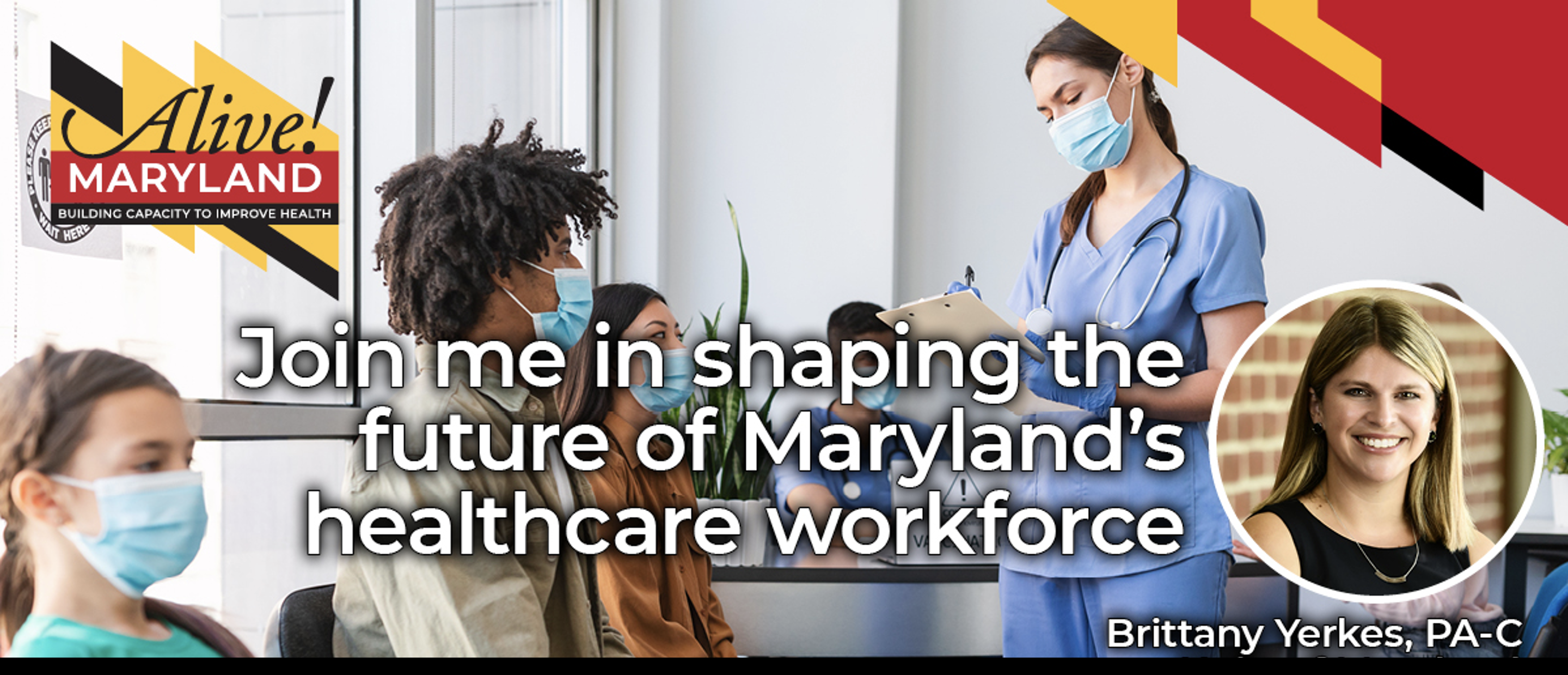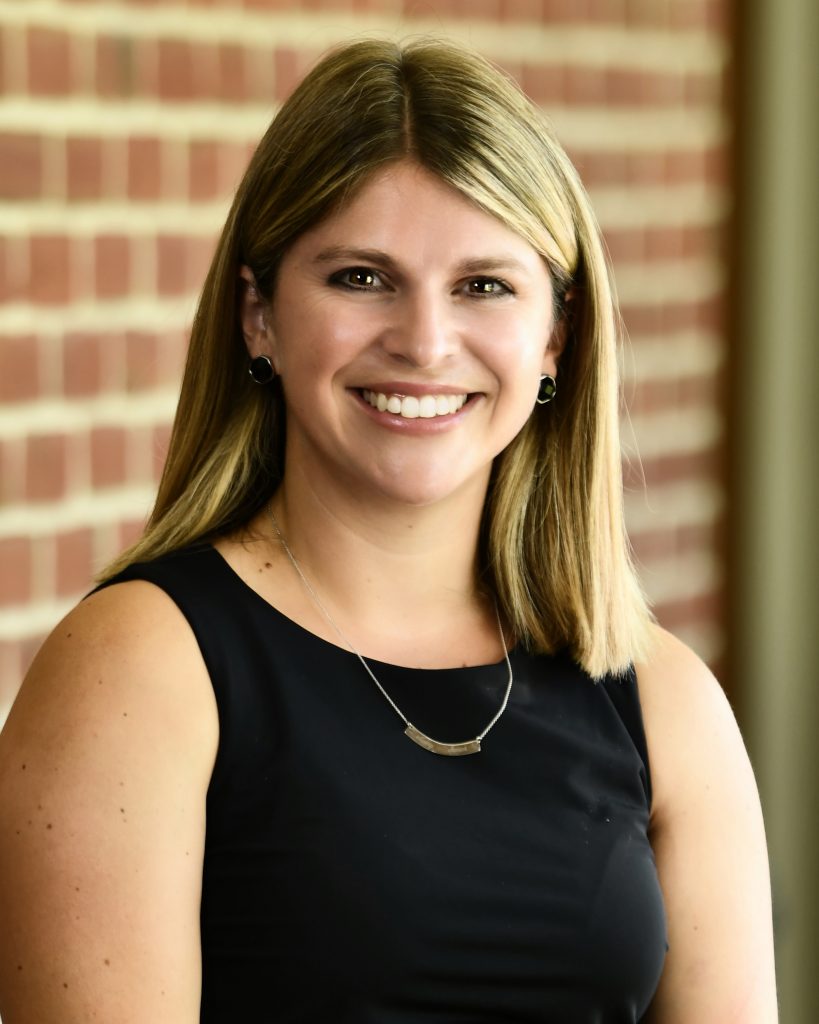
Provider Perspective: Brittany Yerkes, Physician Assistant

Providing effective and affirming care to patients entails more than prescribing medicine. To engage with patients in a meaningful way, providers must recognize the humanity of their patients while also focusing on the entire health of the individual.
Brittany Yerkes, a Physician Assistant at the Chesapeake Health Care and a member of the Alive! Maryland Inter-professional Advisory Board, aims to improve the quality of life for all of her patients. She does so by first believing that they cannot be defined by an illness or condition.
With a firm dedication to the care of her patients, Yerkes is a prime example of a provider who is actively working to build a healthier Maryland.
Read the Q&A below to see how this phenomenal provider brings the state of Maryland Alive!
Can you tell us about your work?
“My primary role here is providing infectious disease care. I care for many people living on the Eastern shore with HIV. I also do a lot of Hepatitis C care and treatment, hepatitis B, PrEP and gender-affirming care. And then I provide primary care services to people who are not living with HIV, as well as with HIV.”
What inspired you to enter this field?
“I got really interested in HIV in college. I was pretty unfamiliar with the whole concept and the epidemic. I didn’t remember learning about it in high school, and when I took a course on it in college it just really blew my mind that something like this– something so deeply impactful– was something I was unfamiliar with. So I took a summer study trip to South Africa and just really learned the intricacies of the epidemic, like where it is now and how it became that way.
I was kind of hooked from the start, and I have really dedicated my practice to learning how to effectively manage [HIV] and all of its iterations. So not just drug management, but how to manage someone as a whole, like their full-body health.”
What is one thing most people don’t know about your field of work?
“I still think that a lot of people don’t know that someone can live a normal and healthy life with HIV. I think people who are unfamiliar with the disease itself still see that picture of HIV and AIDS that we had in the late 80s and early 90s. They don’t recognize that there are many people who have tremendously healthy lives with partnerships and families and careers– that it’s just a piece of someone’s life.”
What are some of the challenges that you faced in the last year and how did you overcome them?
“I think the hardest challenge for me was moving to telemedicine during the pandemic because I really have developed a personal relationship with many patients over the past 11 or 12 years. You lose a lot without being able to physically communicate with someone. And on the Eastern Shore of Maryland, our technology is not great. So just by virtue of Wifi signals and the inability to do video calls with people, you lose a lot in just a telephone call.
[I overcame] by being diligent about recognizing the extra stressors people were going through and trying to have them follow up more frequently. But I’d say by leaps and bounds that I’m much happier with people returning to the office so that I can maintain that personal connection with them.”
What do you hope to see in the future of your field?
“I’m hopeful that [the epidemic] will end, that I’ll have a job different than this job. But until then, I’m hopeful to see people live life as free of disease as humanly possible.
Medications are absolutely critical to ending the epidemic but they’re only one piece of the puzzle. My goal is to support patients’ physical and mental health and emphasize the importance of maintaining balance so that when there is a cure for HIV, my patients will be healthy and capable of living beyond this infection. My vision of the future is a world without HIV.”
Do you know a Maryland-based provider who we should highlight? Email Alive! Maryland at [email protected] with recommendations.
